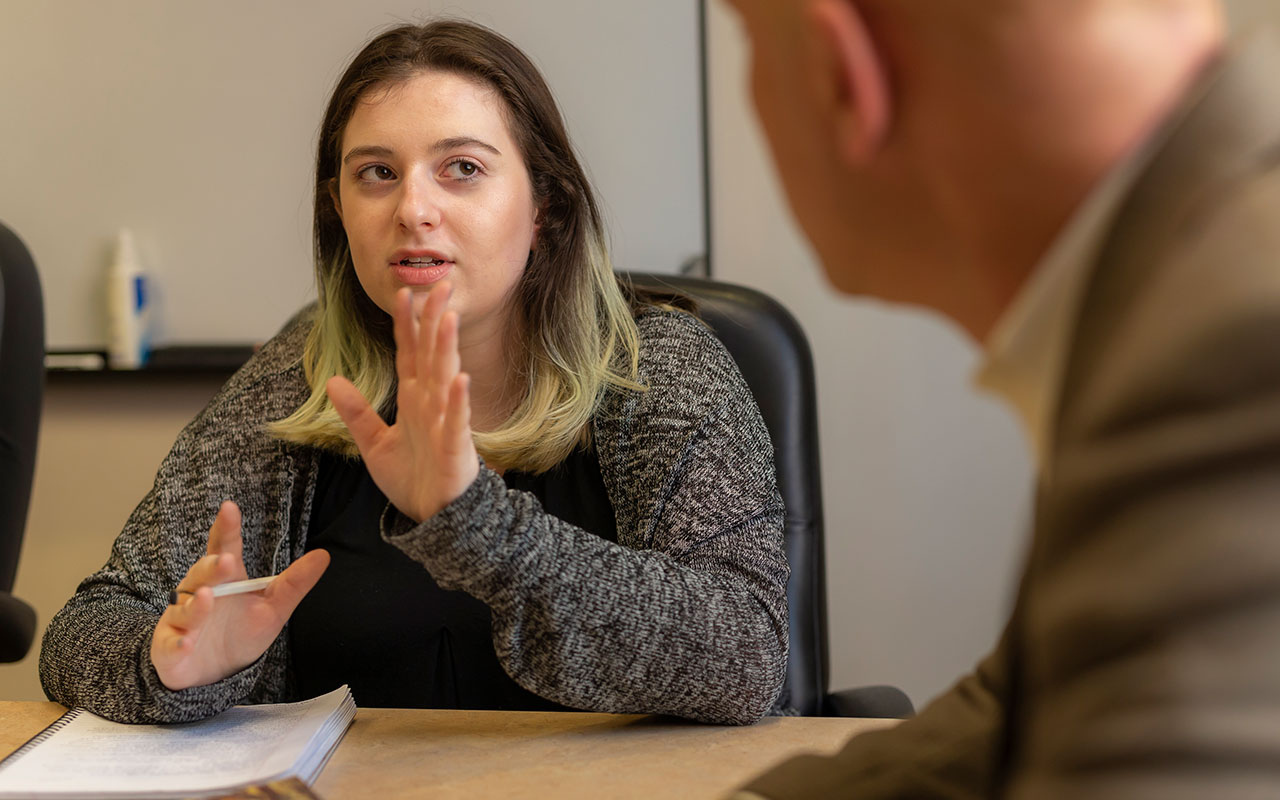After the 2016 presidential election, Natania Chaskes ’21 started thinking more and more about the intersection of politics and religion.
Like so many Americans, she became part of a larger conversation we were having as a country about how divided we seem. Chaskes’ genuine curiosity about the subject, and about all kinds of things, caught the attention of Associate Professor of Communication Jeff Kurtz during his research methods and communication course last fall.
“She seemed almost kind of fearless,” Kurtz says. “She was a first-semester freshman willing to insert herself into discussions and ask questions in a class mostly filled with sophomores — and jargon.”
Kurtz suggested she look into an Early Experience Award, which is part of the Summer Scholars Program, to dig deeper into the topic. The awards are designed specifically for students, like Chaskes, who are very early in their Denison careers. Chaskes, a communication and English literature double major, applied and ended up connecting with Kurtz as her faculty mentor for the project.
“Obviously, a student who is finishing up her first year is going to be very different from a student who has just finished her junior year,” Kurtz says. “The program provides intentional space for novice students, in the best sense of the word, to experiment and try out what it’s like to practice and cut their teeth as a researcher and working scholar.”
Chaskes wanted to better understand the roots of our country’s divisiveness, and ultimately think through ways to find more common ground between us. Working through the project, she began thinking about how religion can be a cultural force to unify, yet can also be leveraged in ways that spur division.
She wondered, ‘If we’re committed to the proposition that the U.S. acknowledges the spectrum of religious conviction, how is it that we’ve reached this curious point in 2018 where we are so thoroughly divided?’
Good question.
For five weeks during the summer, Chaskes spent her time looking for quantitative data on religious beliefs in the U.S. She analyzed data from the Pew Research Center on the current generation of people under 30 to find out if they are drawn to religious institutions. She studied scholarly books about civil religion and the intersection of religion and politics in American public life.
She read a lot, she spanned a wide swath of inquiry through the project in some pretty interesting ways.
I’ve always felt somewhat indignant about the fact that Christianity is so closely tied to American politics and American culture, despite the fact that we’re supposed to keep church and state separate,” says Chaskes, who grew up as part of a religious minority.
Chaskes’ personal experience has, of course, informed the questions she asked and how she reflected about the topic. “Doing this research definitely gave me a deeper understanding of the complex and unique historical circumstances that made America this way. I learned a tremendous amount from my summer research experience, but I know that there is still so much more to learn.”

